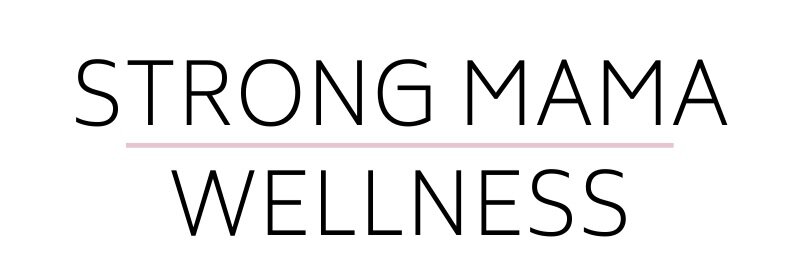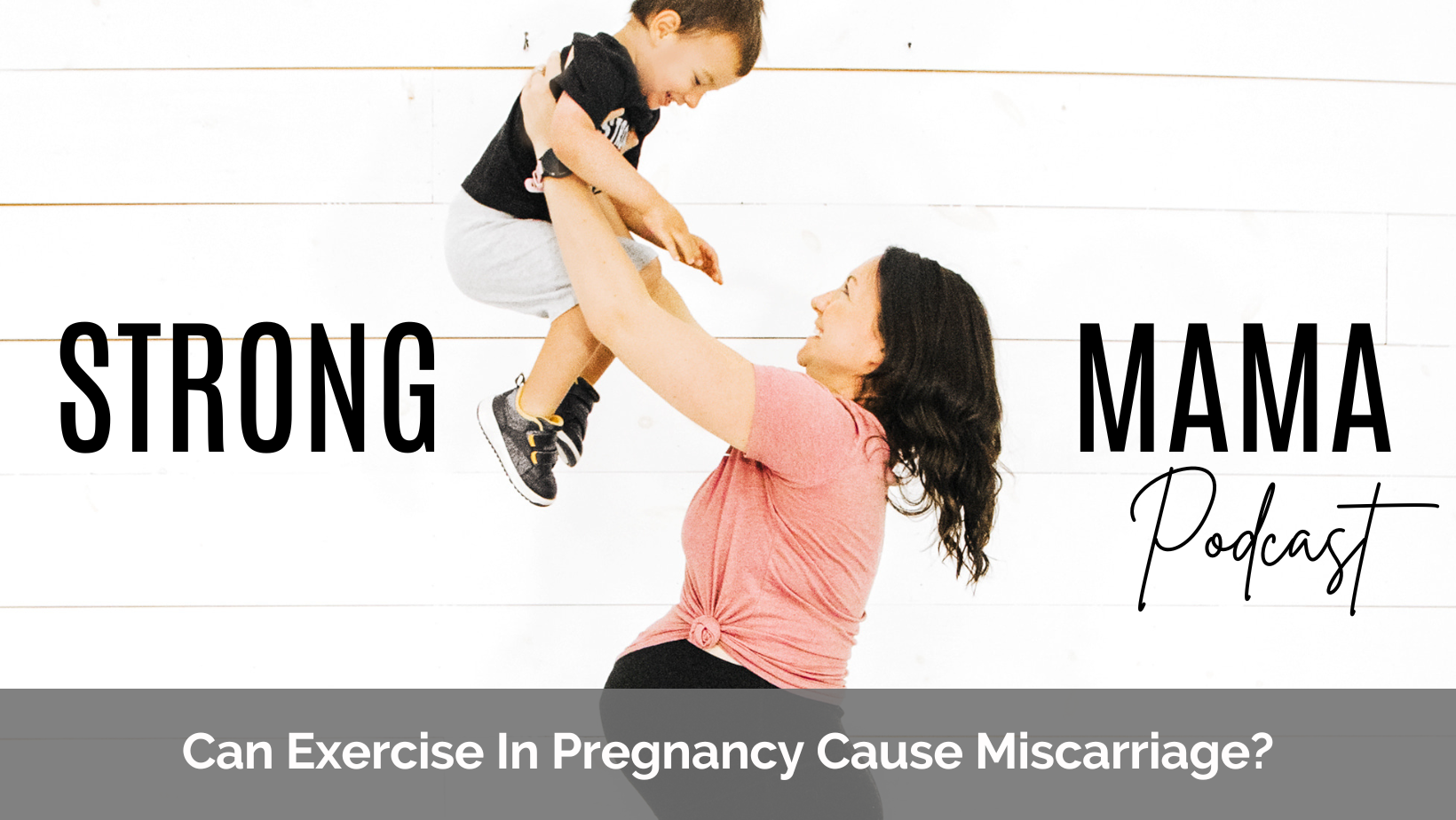Can Exercise in Pregnancy Cause Miscarriage?
Welcome back to the Strong Mama Podcast!
This episode dives into a sensitive yet crucial topic — can exercise cause a miscarriage?
Many expectant mothers fear exercising during pregnancy due to concerns about potential harm to themselves or their babies. In this episode, we'll unravel the facts backed by research studies and provide you with the knowledge to make informed decisions for your body.
Let's debunk myths, address concerns, and empower you to approach exercise during pregnancy from an educated perspective. Listen to the episode here, or on your favorite platform. Or check out the full show notes below!
In This Episode You’ll Learn:
the facts about miscarriage
the link between exercise and miscarriage (if any) from actual research
outdated exercise advice you should be aware of
tips for keeping exercise safe in the 1st trimester and beyond
Let’s Connect
Become a Strong Mama Insider to grab FREE pre/postnatal fitness resources monthly.
Work with me 1-1! Book a free discovery call
For more free content, connect with me on Instagram @strongmamawellness
Show Notes:
Defining Miscarriage:
Before we delve into the relationship between exercise and miscarriage, let's understand what a miscarriage is. Miscarriage is a pregnancy loss occurring up to 20 weeks gestation, with chromosomal abnormalities being the primary cause in 82% of first-trimester cases. It's crucial to recognize that blame or guilt should not overshadow the reality that many miscarriages are beyond one's control.
Dispelling Myths:
Now, let's tackle some common misconceptions. One prevalent myth is the 25-pound weight limit during pregnancy. This advice lacks a one-size-fits-all approach and can be misleading. Strengthening your body, even with weights, can be beneficial, provided you maintain proper form and consider your fitness level.
Another myth suggests refraining from running or jumping during pregnancy, claiming it could harm the baby. This is untrue; running and jumping are safe if done with caution and awareness of your body's signals. Similarly, the outdated advice to keep your heart rate below 140 beats per minute is debunked by the American College of Obstetrics and Gynecology (ACOG), which encourages aerobic and strength training activities during pregnancy.
ACOG Guidelines and Safe Exercise Tips:
ACOG (American College of Obstetrics and Gynecology) advises engaging in aerobic and strength training activities before, during, and after pregnancy, emphasizing 20 to 30 minutes of moderate-intensity activity on most days of the week. This guidance dispels the notion that exercise is inherently harmful during pregnancy.
To ensure safety, consider the following tips:
Avoid high-risk activities: Steer clear of high heat and humidity, scuba diving, and exercises posing a risk of abdominal trauma.
Stay within a safe intensity: Utilize the Rate of Perceived Exertion (RPE) scale, aiming for a perceived intensity between six and eight on a scale of one to ten.
Stay well-hydrated: Hydration is crucial to protect against heat stress; ensure you hydrate adequately before, during, and after workouts.
Warning Signs:
Be attentive to warning signs during exercise, such as pelvic floor pressure, leaking urine, or dizziness. Listen to your body, avoid pushing through pain, and seek professional advice if anything feels abnormal.
Conclusion:
In conclusion, exercise is not correlated with miscarriage when practiced safely. As you navigate pregnancy, empower yourself with knowledge, question myths, and make choices aligned with your body's needs. Remember, this journey is yours, and you have the power to decide what's best for you. Stay strong, stay informed, and keep moving forward. If you have further questions, reach out on Instagram @strongmamawellness. Until next time, mama, keep moving and stay strong!
Sources:
Davenport, M.H., Kathol, A.J., Mottola, M.F., et al. (2019). Prenatal exercise is not associated with fetal mortality: a systematic review and meta-analysis. British Journal of Sports Medicine. 53, 108-115.
https://www.mayoclinic.org/diseases-conditions/pregnancy-loss-miscarriage/symptoms-causes/syc-20354298
Ozawa, N., Ogawa, K., Sasaki, A., Mitsui, M., Wada, S., & Sago, H. (2019). Maternal age, history of miscarriage, and embryonic/fetal size are associated with cytogenetic results of spontaneous early miscarriages. Journal of assisted reproduction and genetics. 36(4), 749–757.
Wilcox, A.J., Weinberg, C.R., O’Connor, J.F., Baird, D.D., Schlatterer, J.P., Canfield, R.E. (1988). Incidence of early loss of pregnancy. New England Journal of Medicine. 319, 89-94.
I’m Nicole, Pre/Postnatal Fitness Coach and founder of Strong Mama Wellness. I take the confusion out of exercising in pregnancy and postpartum and help women strengthen their body for pregnancy, delivery, and recovery. You deserve to have a thriving, healthy pregnancy and postpartum journey!
Join Strong Mama Insiders
for monthly (FREE) pre/postnatal fitness content, workouts and more!






